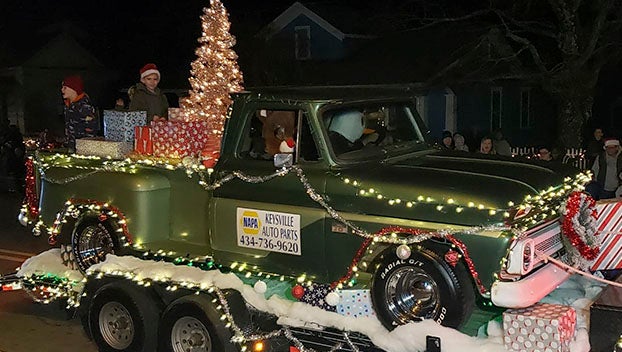Livestock ordinance revisited
Published 11:49 am Wednesday, October 31, 2018
Revisiting the possibility of a county livestock ordinance was recently discussed at an October meeting of the Charlotte County Board of Supervisors.
A motion was made by Red House/Cullen Supervisor Dr. Nancy Carwile to ask the Planning Commission to take a second look at the open fence ordinance in the county.
Drakes Branch Supervisors Garland H. Hamlett, Jr. questioned whether the motion was valid due to the issue not being included on the Board of Supervisors monthly agenda.
Chairman of the Supervisors Gary Walker said it would take consent of the Board.
“ … We just went through this about two or three years ago … we voted it down or tabled it or whatever, but I don’t see why we need to bring it up again,” said Keysville Supervisor Butch Shook.
In light of this, Walker said Carwile’s motion was out of order at the moment since it was not included on the agenda.
“I’ll bring it up at the next meeting, I’ll put it on the agenda,” said Carwile.
“And I’ll second it at that point,” said Aspen/Phenix Supervisors Donna Fore.
The possibility of the new ordinance was first discussed during a November 2017 meeting of the board of supervisors when Carwile said Eureka Elementary School had a situation where cattle and sheep were on the playground.
“ … did that go through the Planning Commission?” asked Wylliesburg/Red Oak Supervisor Kay Pierantoni during the October meeting.
She also asked if a committee was set up previously to study the livestock issue.
Walker said the committee was the Board of Supervisors.
“I think the point is well taken and I do feel that we kind of let things fall by the wayside as far as the livestock ordinance,” said Carwile. “It’s still a problem. I think a lot of people think it was just one farmer and he sold his cows …”
She said that was not the case.
In March 2017, The Charlotte County Board of Supervisors held a public hearing to gather input regarding a proposed fence law — drawing united opposition from farmers in attendance to the proposal.
If approved, the ordinance would prohibit the running of large livestock in the county.
During the hearing, numerous farmers expressed their concerns.
“If you can’t help us, please don’t hurt us,” said farmer Clark Poindexter at that time. He said the board expressed their support for the agricultural industry in the county’s most recent Comprehensive Plan, adding the proposed ordinance would cost additional money and be a contradiction to the plan’s goal.
“I think it should be taken on a case-by-case basis,” said county resident Ed Miller previously, who added there were some in the county who do not put their animals up at all.
He previously presented supervisors with several photos of goats that he said were not properly contained and had made their way onto his property.
“The boundary line of each lot or tract of land in the county is declared and established to be a lawful fence as to any livestock identified …, the proposed ordinance states.
Animals identified as livestock in the ordinance include cattle, horses, mules, goats, sheep, swine, donkeys, alpaca, llamas and any other four-legged or hooved animal.
“Your ordinance is concerning hooved animals,” said county resident Linda Adams at that time. “I don’t think you’re looking at everything.”
Charlotte currently is an “open designation county,” which allows livestock to roam freely.
“We would favor remaining under Virginia State Code …,” said Charlotte County Farm Bureau Representative Randolph Walker previously. “At our regular march meeting, we adopted a resolution opposing this ordinance.”
Walker said the organization represents over 200 cattlemen.
The ordinance indicated it would be declared unlawful for livestock owners to allow their animals to run beyond the limits of their lands.
“The cattle association is deeply opposed to this ordinance,” said cattle farmer and Cattle Association member Bailey Wright previously. He said if the ordinance is enacted, it would increase the liability for farmers in the county.






